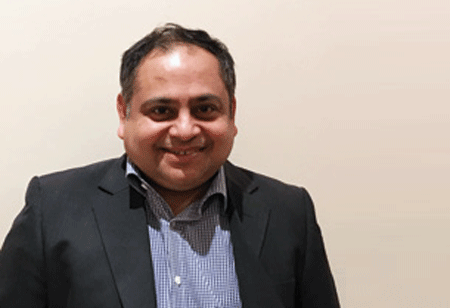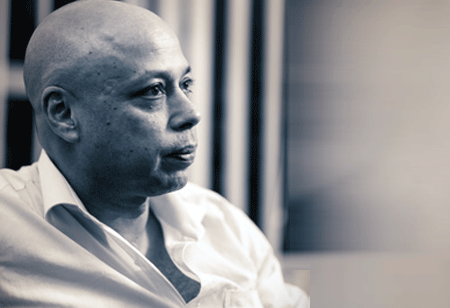
Age-Tech: Digital Technology That Revolutionises Ageing


Tamojit Dutta, Co-Founder, Tribeca Care, 0
Pradeep with over 20 years of expertise in sales & distribution market is launching new and large initiatives with emphasis on creating robust processes, distributed through a complex multi geography sales structure
Dey is 84 years old, suffers from early stage dementia and lives alone. Her adult children stay abroad. She has had two serious falls recently and is feeling increasingly isolated at home. Dey is the real face of a rapidly ageing world.
Technology will revolutionise the way the world ages and how we interact with that ageing world. It will impact every aspect of ageing medical care, lone liness, retirement living, and social networks. Artificial Intelligence(AI) is already improving senior safety, mobility and connectivity. Mobile alerts and home sensors are making it easier to remotely monitor loved ones’ welfare.
The first waves of digital change are crashing on our ageing shores.
Age-Tech is a Global Opportunity
Over the last decade, 'FinTech has dominated global investor interest and user imagination. Now, is the time for 'AgeTech' to shake up the $17 trillion Senior Economy.
The world is ageing fast. Between 2000 to 2050, the 60+ demographic would increase from 12 percent to 22 percent of global population(605 million to two billion). The number of 80+ seniors will quadruple creating significant social, economic, and health challenges for all.
A range of AgeTech solutions smart homes, medical alerts, customisable medicines conversational robots, audio books, voice assistants will create incredible opportunities for us to improve the lives of the elderly.
Automating Health Diagnosis
People like Dey suffer more from chronic diseases and co-morbidities than others. Many large US hospital systems are now increasingly using AI-based automation to improve diagnosis and monitoring of diseases that affect the elderly disproportionately osteoporosis, dementia, and osteoarthritis.
In India, large tertiary hospitals are using telemedicine platforms to provide specialist diagnostics to smaller clinics in remote locations. These services are particularly beneficial to elderly patients who cannot travel long distances to access better care.
Improving Home Care
We all worry about elderly parents especially if they live far away from us. However, an explosion of affordable tech has now made remote monitoring of elderly patients easier and cheaper. By using non intrusive sensors or wearable alarms, innovative Home Care Companies are helping families improve at home care and emergency response.
In the UK for example, AI platforms are monitoring a range of health metrics at home fall risks, pulse rate, sleep cycles, unusual behaviour patterns, and subdued daily activity. Data analytics improve patient diagnosis and can now trigger care intervention much earlier at the senior’s home.
Voice-based virtual assistants such as Amazon Echo are using AI to enable medication adherence and care coordination for the elderly. Mobile apps are making information more easily available to seniors at home be
it medical advice, mental counselling, care worker reviews, smart home choices, senior travel options, and pharmacy deals.
Reducing Fall Risks
One in three adults over 65 will fall at least once a year. Some falls would result in broken bones, head injuries or serious chronic pain. Falls can also cause loss of confidence among the elderly ultimately resulting in loss of independence, like in the case of Mrs Dey.

Prateep Sen
Startups have developed AI-powered fall sensors that trigger alarms and immediately engage emergency response teams. These healthtechs play a crucial role in keeping seniors safer for longer.
Reducing Isolation & Depression
Senior citizens often live alone find travelling hard, and do not engage with social media enough. Isolation among the elderly is very common. Early diagnosis of depression or mental apathy is critical for active intervention, including psychological support and medication.
Technology can be an enabler in helping arrest depression and managing it over time. In China, entrepreneurs are using AI powered cameras to connect at risk seniors remotely to psychologists, psychiatrists, and volunteers.
In Japan, conversational robots are being programmed to provide tailored conversations and engage with seniors who are at risk of social isolation. Robotic helpers are being developed to counter the paucity of human care workers and even improve the efficiency of care.
Increasing Digital Participation
Digital education classes for the elderly are popular across the world as seniors learn about smart phones, play games on tablets and use social media to interact with others. Companies are building tech solutions to keep seniors active, engaged, and connected with the wider world.
Specialist digital platforms help American seniors find romance, social clubs, rare books, music of olden times and a whole lot of senior specific interests. It is not that seniors do not engage with digital technology it is just that enough has not been done to engage with them.
Technology for the Aged Needs Specialisation
Age-related physical and cognitive challenges will require adaptation and innovation in tech. Decline in vision may make reading small font on smartphone screens difficult. Colour vision maybe compromised with age so that screen designs must be adapted. Keypads need to be bigger or even modified to counter poor eyesight, arthritic fingers, or dementia.
We will need additional regulatory, privacy, and cyber security measures to protect seniors. For technology to play a central role in 60+ lives, many improvements are still required simpler products, cheaper hardware, intuitive software and senior friendly solutions that the elderly want.
Yet whatever the challenges, more people like Mrs Dey will need more 'AgeTech'solutions more quickly in the immediate future.
Reducing Fall Risks
One in three adults over 65 will fall at least once a year. Some falls would result in broken bones, head injuries or serious chronic pain. Falls can also cause loss of confidence among the elderly ultimately resulting in loss of independence, like in the case of Mrs Dey.

Prateep Sen
Startups have developed AI-powered fall sensors that trigger alarms and immediately engage emergency response teams. These healthtechs play a crucial role in keeping seniors safer for longer.
We at Rx365 aim at improving the revenue generation for Pharmaceutical companies by linking the demand of end-users to the supply by these companies
Reducing Isolation & Depression
Senior citizens often live alone find travelling hard, and do not engage with social media enough. Isolation among the elderly is very common. Early diagnosis of depression or mental apathy is critical for active intervention, including psychological support and medication.
Technology can be an enabler in helping arrest depression and managing it over time. In China, entrepreneurs are using AI powered cameras to connect at risk seniors remotely to psychologists, psychiatrists, and volunteers.
In Japan, conversational robots are being programmed to provide tailored conversations and engage with seniors who are at risk of social isolation. Robotic helpers are being developed to counter the paucity of human care workers and even improve the efficiency of care.
Increasing Digital Participation
Digital education classes for the elderly are popular across the world as seniors learn about smart phones, play games on tablets and use social media to interact with others. Companies are building tech solutions to keep seniors active, engaged, and connected with the wider world.
Specialist digital platforms help American seniors find romance, social clubs, rare books, music of olden times and a whole lot of senior specific interests. It is not that seniors do not engage with digital technology it is just that enough has not been done to engage with them.
Technology for the Aged Needs Specialisation
Age-related physical and cognitive challenges will require adaptation and innovation in tech. Decline in vision may make reading small font on smartphone screens difficult. Colour vision maybe compromised with age so that screen designs must be adapted. Keypads need to be bigger or even modified to counter poor eyesight, arthritic fingers, or dementia.
We will need additional regulatory, privacy, and cyber security measures to protect seniors. For technology to play a central role in 60+ lives, many improvements are still required simpler products, cheaper hardware, intuitive software and senior friendly solutions that the elderly want.
Yet whatever the challenges, more people like Mrs Dey will need more 'AgeTech'solutions more quickly in the immediate future.